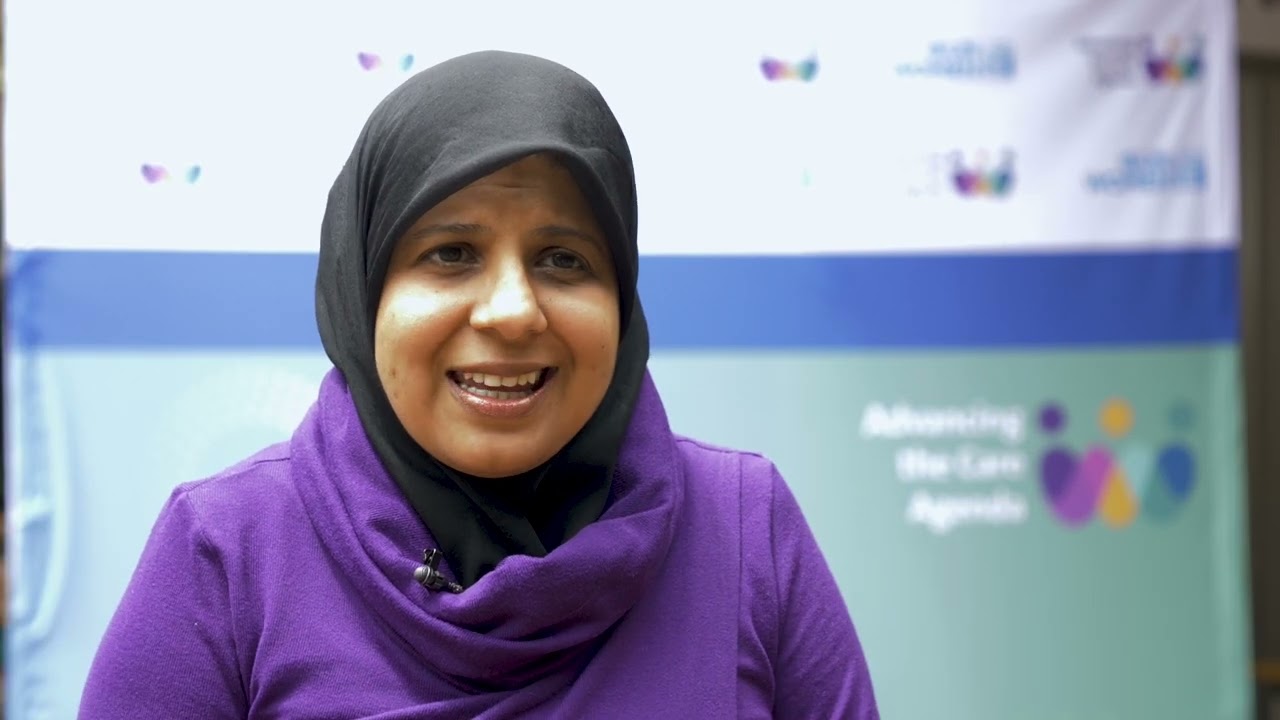Women’s time is money: East and Southern Africa defining its Care Agenda
Date:
“Share the Care: care responsibilities must be shared between women and men; and public and private sector”-this was the key message and the call to action at the Regional Knowledge Sharefair event that was organized by UN Women Regional Office in East and Southern Africa (ESARO) and the partners.
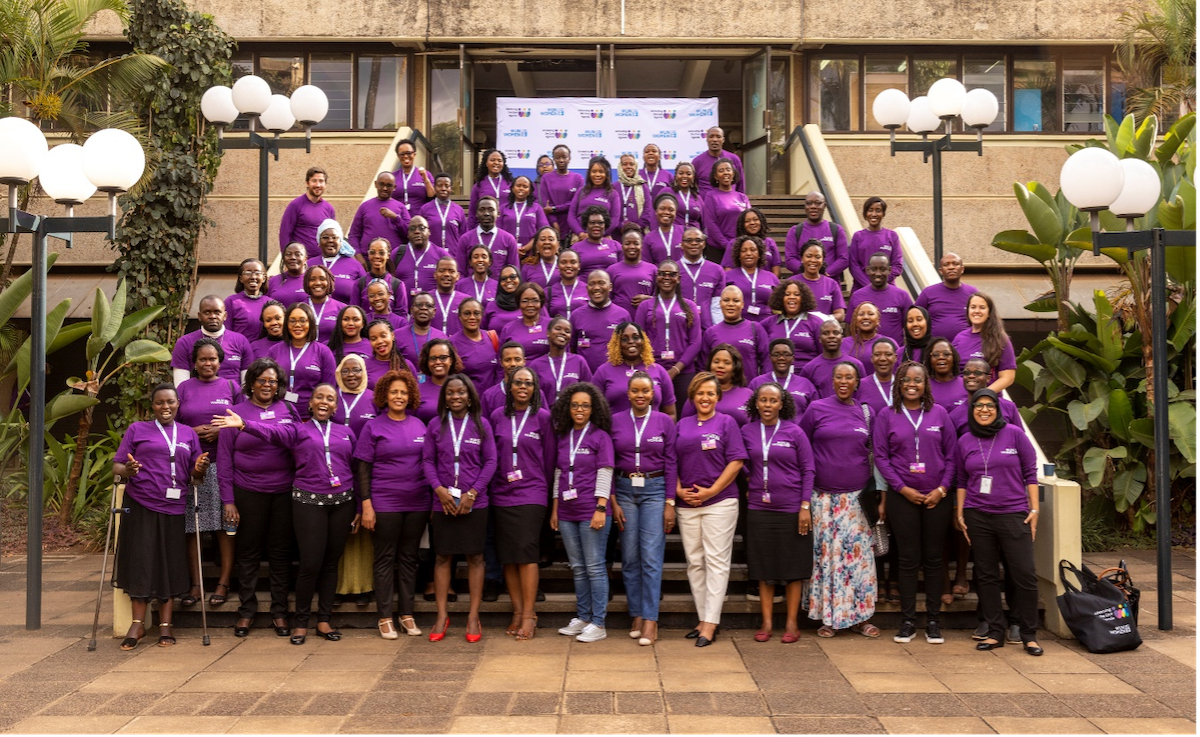
Care work refers to any work that involves caring for others, including unpaid care for family members and friends. This includes taking care of children, the elderly, the sick, and domestic work such as cleaning, cooking, fetching water or firewood. Care work is also part of the formal sector, where one is paid to care for others such as nannies and caregivers. Care work is a crucial element for each individuals’ wellbeing as well as an essential component for a vibrant sustainable economy with a productive labour force. It is a universal human need, without which our society can't function. The care economy is built on the unpaid and underpaid labour of mostly women and girls, around the world women and girls shoulder a disproportionate share of care work that is unpaid, unrecognized and undervalued. In the last couple of years, we have all seen how global crises exacerbate this situation. The COVID-19 pandemic has further revealed the fragility and inadequacy of prevailing care work arrangements, societies’ dependence on unpaid care, and the precarious labour conditions of care workers.
There are three main problems that are associated with care which include the lack of co-responsibility, care being considered a women’s issue, and care being linked to gender inequality. Unequal gender distribution and low status is a key barrier to women’s social, political, and economic empowerment. Women and girls have to shoulder a disproportionate share of unpaid care work and gender imbalances in the distribution of care work.
In East and Southern Africa, women spend around 3.5 times more on unpaid care work than their male counterpart. It means women are less able to access income-generating work, escape poverty, be financially independent and accumulate savings, assets, or retirement income for their later years. It also means less time for schooling and training, political participation, self-care, rest, and leisure. Thus, the care economy has crucial implications for gender equality and both the realization and enjoyment of human rights, including the right to work. It is also a key development policy issue given its links to poverty reduction, the elimination of inequalities by socioeconomic status, decent job creation, and sustainable development.
UN Women ESARO ‘s three-day regional convening represented a crucial milestone in the discussions on advancing the care agenda in the East and Southern Africa region and provided the opportunity to explore the role of women and girls in building and strengthening resilience as well as to promote dialogue around care work amongst stakeholders from governments, civil society, academia, and private sector in the region.
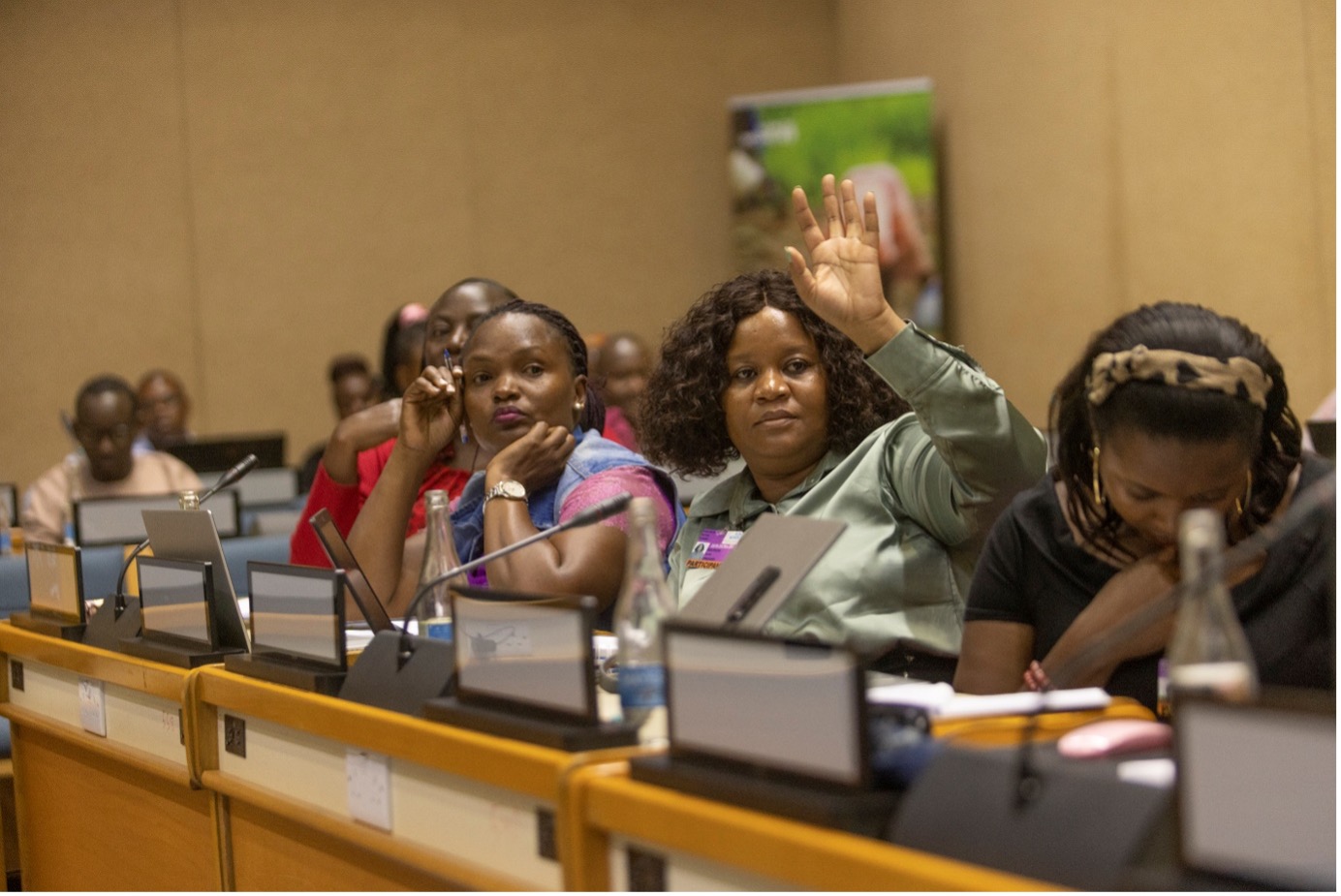
“We need investments in social protection, essential social services and the adoption of laws and policies that protect fundamental labour rights. Such investments in social infrastructure and care provisioning will not only strengthen economic justice and rights for women and girls but will also yield positive health, economic development, and gender equality outcomes,” said Zebib Kavuma, Deputy Regional Director, UN Women East and Southern Africa, as she opened the session. She went on to emphasize the need to work together with all partners to value the unpaid care and domestic work that women do in the region and in promoting gender equality within the care agenda.
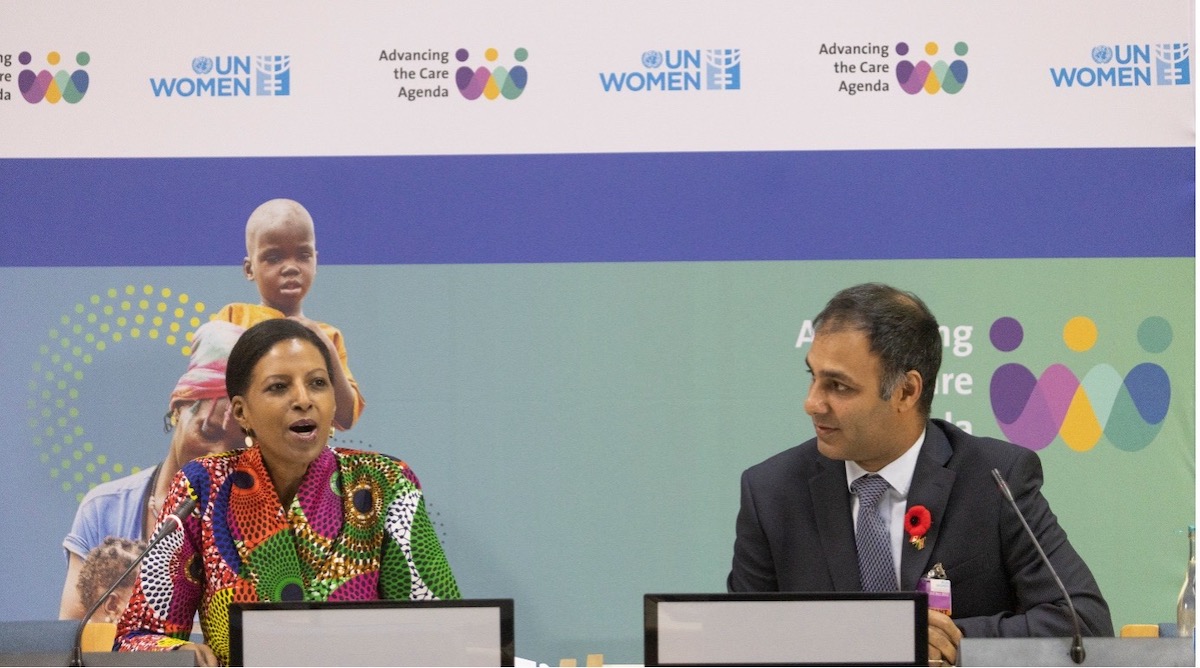
“Women tend to bear the brunt of unpaid care and domestic work. While unpaid care work is economically important, it prohibits women from entering or fully participating in the labour force. Effective policies should focus on the 5R strategy to address issues both in the public and private spheres,” said Mehjabeen Alarakhia, UN Women Regional Policy Specialist on Women’s Economic Empowerment during the event discussing on how to reduce women’s disproportionate responsibility of unpaid care work.
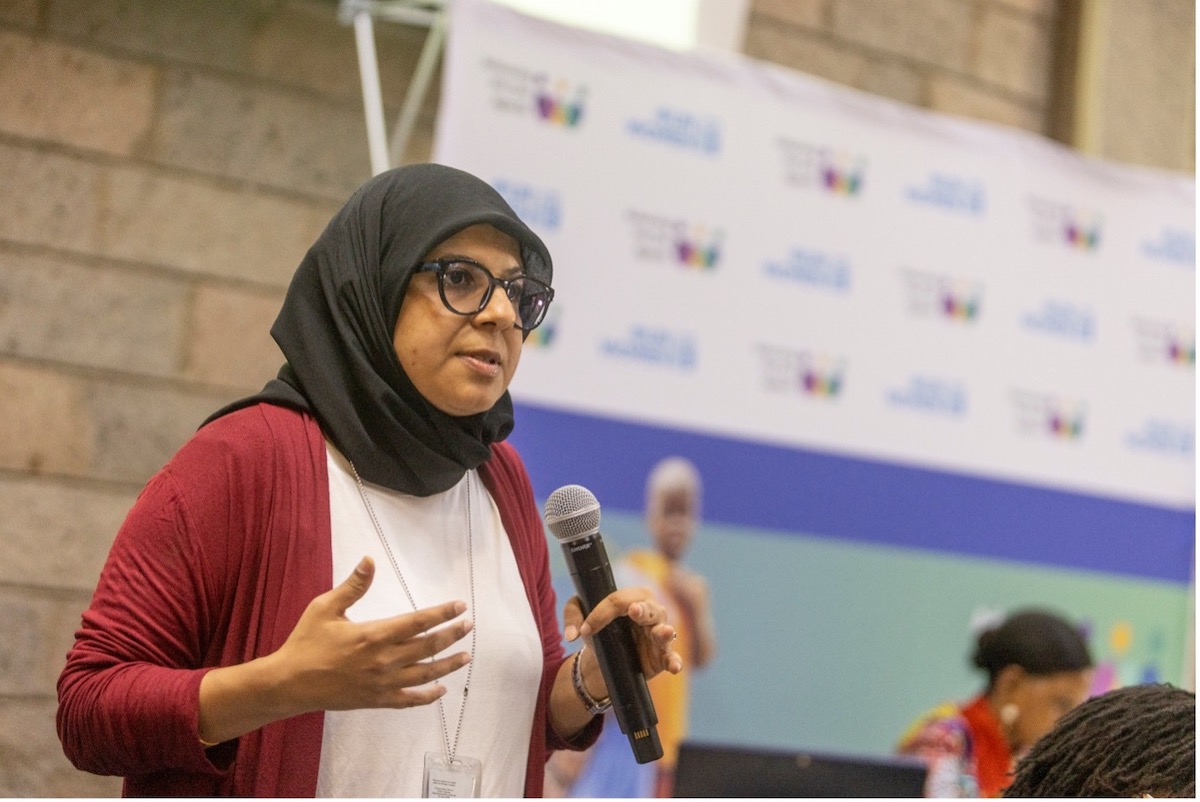
“For Canada, addressing care work means addressing root causes of gender equality, promoting care work as a shared responsibility between men and women,” said Hanif Pabani, First Secretary, Pan-African and Regional Development, Global Affairs Canada who provided opening remarks at the event. He emphasized on care work being crucial for women’s economic empowerment.
The event brought together 125 representatives from 17 countries, from governments, development partners, civil society, academia and research institutions and private sector with the aim to strengthen the capacity on the care economy and the 5Rs – (Recognize, Reduce, Redistribute, Reward, Represent) from an East and Southern African perspective. It also provided a platform to discuss and consult on the key issues, opportunities, and barriers in promoting gender equality within the care agenda. Additionally, it provided and created a durable network linking women’s and youth’s associations and groups from across the region. This helped with the showcasing and sharing of good practices of policies, interventions and development models that can be adapted and scaled up to advance the care agenda in the region.
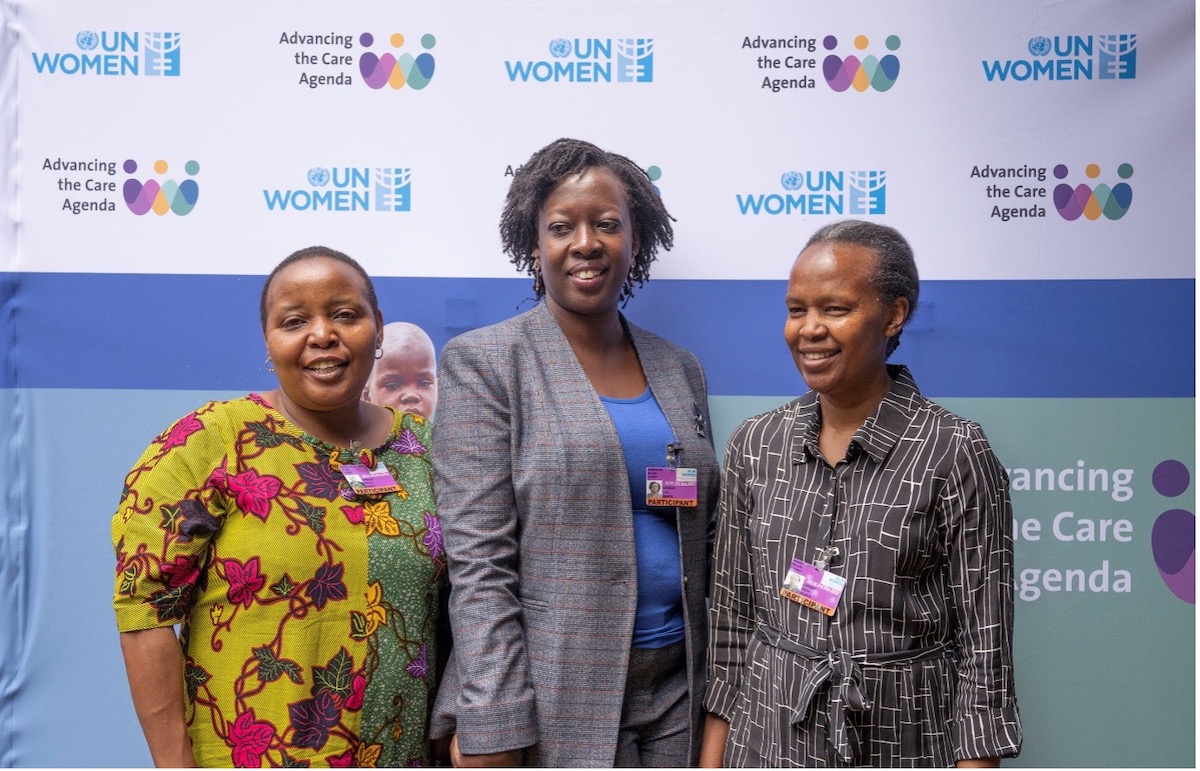
The outcomes of the Sharefair have been 1) establishing a common vision and understanding of the unpaid care and domestic work issues in the region; 2) increasing the capacity of stakeholders and partners on unpaid care and domestic work in in the region; and 3) the creation of a regional network on the care agenda to amplify solutions beyond the Regional Knowledge Sharefair.
The Sharefair event was held in partnership with the African Women’s Development and Communication Network (FEMNET) and with the support of the Global Affairs Canada (GAC).
